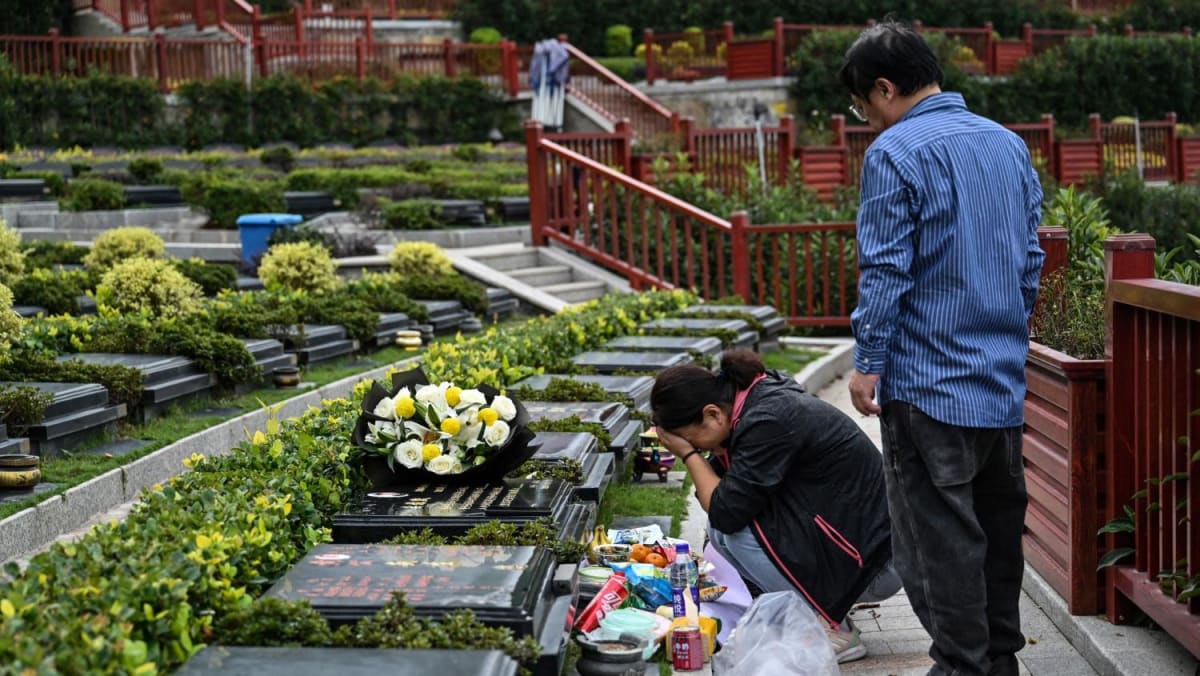TAIZHOU — At a quiet cemetery in eastern China, bereaved father Seakoo Wu pulls out his phone, places it on a gravestone and plays a recording of his son.
Super Brain charges between 10,000 and 20,000 yuan ($1,400-$2,800) to create a basic avatar within about 20 days, said Mr Zhang.
They range from those who have died to living parents unable to spend time with their children and — controversially — a heartbroken woman’s ex-boyfriend.
Clients can even hold video calls with a staff member whose face and voice are digitally overlaid with those of the person they have lost.
“The significance for… the whole world is huge,” Mr Zhang said.
“A digital version of someone (can) exist forever, even after their body has been lost.”
‘NEW HUMANISM’
Mr Sima Huapeng, who founded Nanjing-based Silicon Intelligence, said the technology would “bring about a new kind of humanism”.
He likened it to portraiture and photography, which helped people commemorate the dead in revolutionary ways.
Dr Tal Morse, a visiting research fellow at the Centre for Death and Society at Britain’s University of Bath, said ghost bots may offer comfort.
But he cautioned that more research was needed to understand their psychological and ethical implications.
“A key question here is… how ‘loyal’ are the ghost bots to the personality they were designed to mimic,” Dr Morse told AFP.
“What happens if they do things that will ‘contaminate’ the memory of the person they are supposed to represent?”
Another quandary arises from the inability of dead people to consent, experts said.
While permission was probably unnecessary to mimic speech or behaviour, it might be needed to “do certain other things with that simulacrum”, said Dr Nate Sharadin, a philosopher at the University of Hong Kong specialising in AI and its social effects.
For Super Brain’s Zhang, all new technology is “a double-edged sword”.
“As long as we’re helping those who need it, I see no problem”.
He doesn’t work with those for whom it could have negative impacts, he said, citing a woman who had attempted suicide after her daughter’s death.
Bereaved father Wu said Xuanmo “probably would have been willing” to be digitally revived.
“One day, son, we will all reunite in the metaverse,” he said as his wife dissolved into tears before his grave.
“The technology is getting better every day… it’s just a matter of time.” AFP


